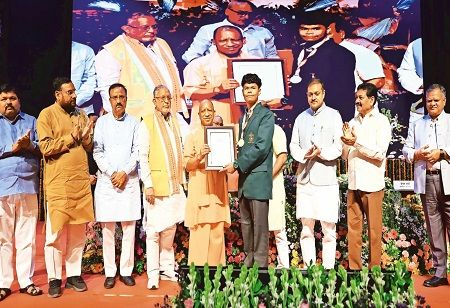- UP Govt Signs MoU with Tata Nelco & Japan’s Yaskawa to launch Dream Labs in secondary schools, boosting tech-driven, hands-on education.
- Students to Get Skilled in Robotics, AI, EVs, and 3D Printing, with a focus on industry-linked, job-ready training across 15 key fields.
- Dream Labs to Aid Local MSMEs and Align Education with Global Tech Trends, fostering innovation and employability in both rural and urban areas.
UP government's Department of Secondary Education has entered into an MoU with Tata Nelco and Yaskawa of Japan to establish Dream Labs in government secondary schools.
The project focuses on injecting practical and technology-based learning into classrooms to produce a talented workforce. Drawing lessons from international models such as the US, Germany, Japan, and South Korea, UP is now linking school education to industry requirements to enhance employability and innovation", said the government in a press release.
Dream Labs seek to empower students with sophisticated technical training in the fields of robotics, manufacturing, automation, and design thinking.
This will also enable local MSMEs with technical assistance and enhance product quality, innovation, and international competitiveness, the government added.
Dream Labs are intended on the 'hub and spoke' pattern, with the students to be provided with hands-on training, locally relevant skills, and job-readiness opportunities, an official said. Skill development will also be customized for local requirements in rural and urban geographies agriculture, handicrafts, renewable energy, drone technology, and 3D printing, said the official.
The global aspect of Dream Labs will introduce students to forward-thinking technologies such as electric cars, artificial intelligence (AI), industrial automation, and robotics` technologies that are likely to form the foundation of future economies, the government added, noting the labs would span 15 specialized skill fields.
The move, the government said, aligns state policy with changing industry needs, creates a trained workforce that spans classrooms and factories, and links local influence with international opportunity.

